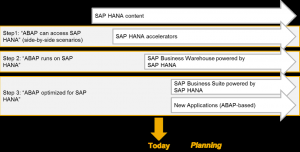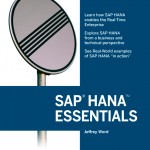Dear Senior and Executive Management in Enterprise IT and staff,
There’s no need to deny it, you are flooded with information. Before you’ve evaluated the one hype, the next buzz word is already dominating your tag cloud and screaming for attention all over your screen. To relieve this burden a bit ENSEAD Advisory started to share a selection of noteworthy reading for you through Facebook.
Topics all relate to the IT Supply side – mainly SAP – and range from planning and preparing for projects and programmes with an IT element; via their inception to the phase out of the delivered IT solution. In other words, topics span across the entire lifecycle of IT solutions. To make it even more compact for you, here’s a summary of topics and items and comments ENSEAD shared with you during June!
Gartner says worldwide spending on Enterprise Application software [Enterprise IT] is expected to increase 4.5 percent in 2012. That’s excellent news for (SAP) Enterprise Architects! Because what every great architect should understand is that if you don’t get it built, your work doesn’t matter – as per the words of marketing guru Seth Godin.
Gartner even has more encouraging news for senior IT staff. “In spite of clouds and outsourcing, the need for a smart internal group that helps a business explore, define and exploit technology enabled change opportunities will not disappear.” How else can businesses survive this age of “Continual Enterprise Transformation”, as ENSEAD Advisory likes to call it? Happy to help here by the way: this is the core business of ENSEAD Advisory (next to turning opportunities into tangible solutions).
Enterprise IT Applications are sourced more and more as-a-service these days, delivered from the internet (yep, aka cloud-based solutions). Contracts with well-defined and transparent Service Level Agreements are not market standard yet, Gartner seems to say. The debate about what went wrong (and who is to blame) around cloud outages, happens mainly through public interviews, blogs and articles. It seems that when something goes really wrong, transparency quickly becomes the norm again.
Good news for SAP: they celebrate the one-year anniversary of SAP HANA. Reason for a party: SAP’s combination of SAP Sybase ASE, SAP Sybase IQ, SAP Sybase SQL Anywhere and SAP HANA revenue enabled SAP to secure fourth place in global market share, says IDC. ENSEAD Advisory was one of the first to share the news on the SAP HANA Essentials e-book, which causes traffic to the ENSEAD Advisory site to explode… The Newsletter from the Business Process Experts Community also starts with SAP HANA but also features an article on Enterprise Mobility, as well as on when to use PI, BPM and Business (ABAP) Workflow.
– Mendel



